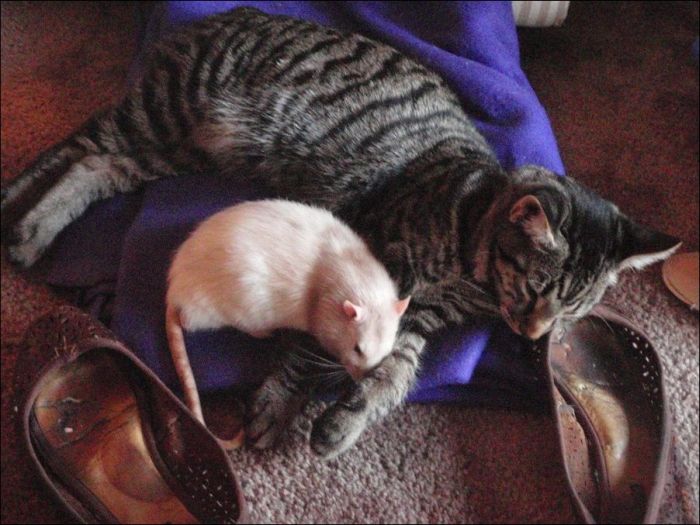|
|
Cat With Mouse
|
Female cats are seasonally polyestrous, which means they may have many periods of heat over the course of a year, the season beginning in spring and ending in late autumn. Heat periods occur about every two weeks and last about 4 to 7 days. Multiple males will be attracted to a female in heat. The males will fight over her, and the victor wins the right to mate. At first, the female will reject the male, but eventually the female will allow the male to mate. The female will utter a loud yowl as the male pulls out of her. This is because a male cat's penis has a band of about 120–150 backwards-pointing spines, which are about one millimeter long; upon withdrawal of the penis, the spines rake the walls of the female's vagina, which is a trigger for ovulation. This act also occurs to clear the vagina of other sperm in the context of a 2nd (or more) mating, thus giving the latter males a larger chance of conception.
After mating, the female will wash her vulva thoroughly. If a male attempts to mate with her at this point, the female will attack him. After about 20 to 30 minutes, once the female is finished grooming, the cycle will repeat.
Because ovulation is not always triggered by a single mating, females may not be impregnated by the first male with which they mate. Furthermore, cats are superfecund; that is, a female may mate with more than one male when she is in heat, with the result that different kittens in a litter may have different fathers.
The gestation period for cats is between 64–67 days, with an average length of 66 days. The size of a litter averages three to five kittens, with the first litter usually smaller than subsequent litters. Kittens are weaned at between six and seven weeks, and cats normally reach sexual maturity at 5–10 months (females) and to 5–7 months (males), although this can vary depending on breed. Females can have two to three litters per year, so may produce up to 150 kittens in their breeding span of around ten years.
|
|









